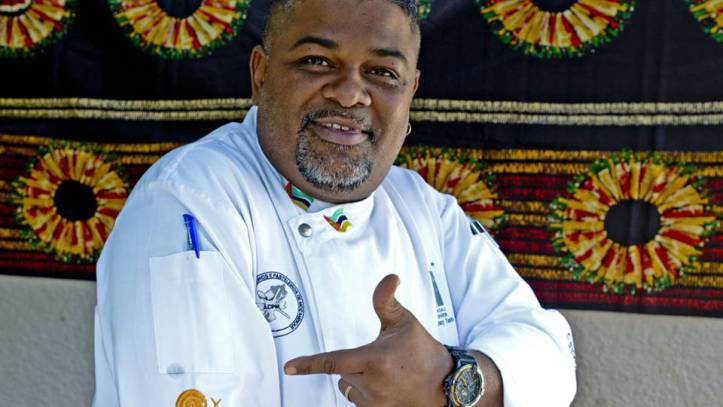Italian-Mozambican Jazz Festival kicks off in Maputo
Matapa, Xima and Cassava feature in Macau’s Mozambique Gastronomy Week

Lusa (file photo) Mozambican Chef Carlos Graça
The 8th annual Mozambique Gastronomy Week kicked off in Macau on Friday 17 June under the direction of chef Carlos Graça, who took with him the full complement of essential ingredients for cooking “true Mozambican food”.
“I brought matapa (pounded cassava leaves), fresh cassava, cashew nuts – there are cashew nuts here, but they taste different – I brought pounded peanuts, traditional liquors, beer which we use in certain dishes, I brought dried fish, piripíris, spices. All this to be as true as possible to the good foods we have in Mozambique,” he said, lamenting that his baggage allowance did not allow him to bring more.
Until Sunday June 26, the buffet lunch at the Grande Lapa Hotel Macau will include what Graça calls “Mozambique’s business card”: “Matapa, made from pounded cassava leaves to which we add pounded peanut, coconut milk and seafood. It takes four hours to cook. In this case, I will make it with shrimp or crab, and served with xima, which is a kind of corn mash that is eaten in Africa. It is a very popular dish, from north to south.”
The event is organized by the Macau Association of Friends of Mozambique, which is putting on a special dinner on June 25 to celebrate the 41st anniversary of the independence of the country, open to anyone who wants to participate, on registration.
Despite the great difference between Chinese and Mozambican food, the gastronomic week has been attracting more and more Chinese patrons.
“It’s increasingly successful, always a full house, usually no place available. In general, people like it, not only the Portuguese community but also the Chinese. There are many Mozambicans, many Africans, there is much demand and this encourages me to return to Macau,” Graça explains.
The Chinese, he said, particularly enjoy seafood, but also like the curry dishes. “Mozambique cuisine is a fusion of Portuguese and Indian cuisine, so we have a habit of using curry powder as well as the Portuguese ‘feijoadas’, bean stew. These flavours all mix together to make our food,” he says.

Despite the regularity with which he visits Macau, which he already considers a second home, Carlos dismisses the idea of opening a permanent Mozambican restaurant in the oriental entrepôt.
“I am established in Mozambique, I have a restaurant in Maputo. Coming to Macau, I had no one to leave in charge. But I think [a restaurant in Macau] would get a lot of traffic, with the demand there is here,” he muses.












Leave a Reply
Be the First to Comment!
You must be logged in to post a comment.
You must be logged in to post a comment.